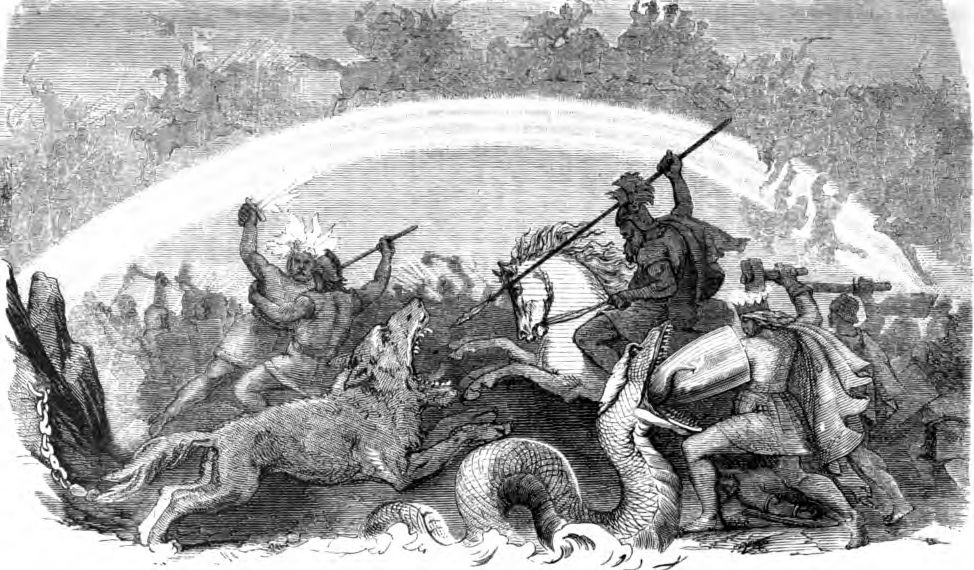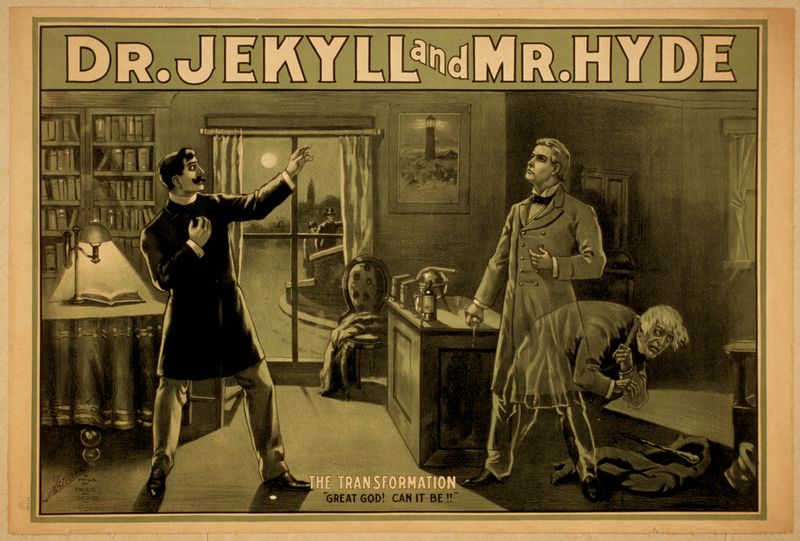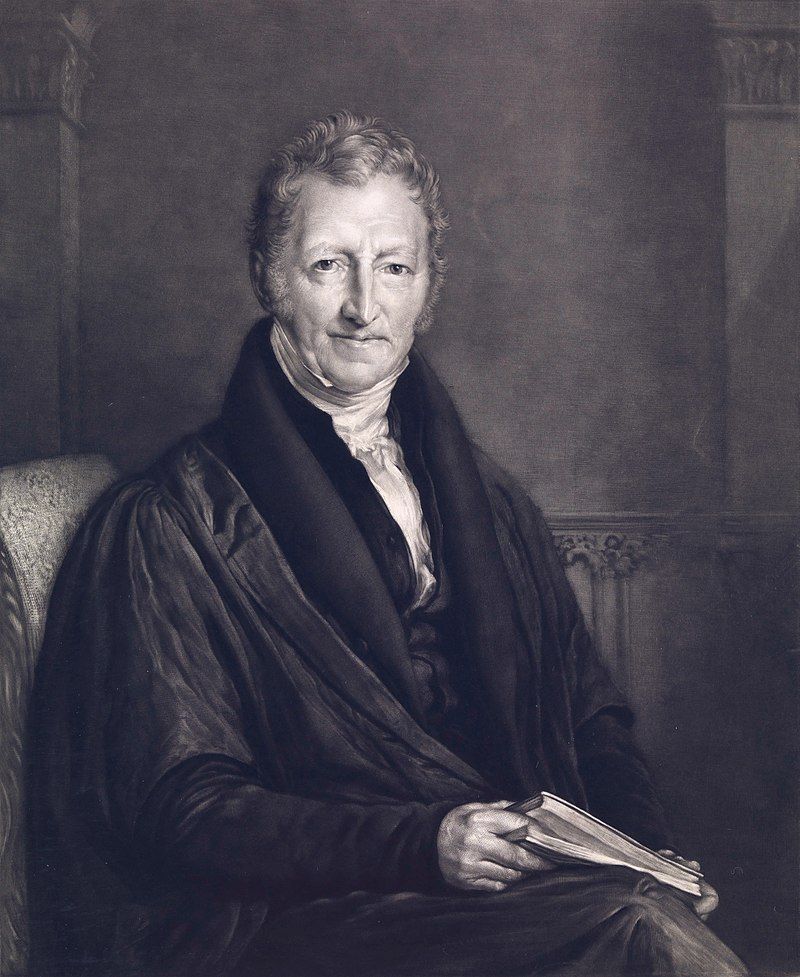In seeking the origin of these developments, both common and sacred researchers have invoked a wide range of explanations. For us, an essential guiding light will continue to be Darwinian evolution, applied now to human behavior.
Brian Green, Until the End of Time
With such a devastatingly demoralizing quote I begin this article: the world has changed indeed, never to go back to what it was. This can be positive. But what I see with ever increasing clarity, as the days go by, is the opposite reactionary tendency: the tendency of great minds (or great power) to dwell in the Usher’s house of 19th century predatory philosophy, where they find refuge. There they live, echoing the old decrepit paradigms now painted with bright artificial colors. Today this superannuated ideological conglomerate has been gladly adopted by the new ultra-powerful as much as the old usual suspects and their sycophants to continue business as usual: no youth rebellion, just an ominous handover, even at the cost of humankind itself. The impunity with which these power nodes continue basking in the torrid sun of corruption, the weakness and blindness of rulers of whichever definition to continue ruling forever without the need of the ruled, the obstinacy of all things old to continue their Danse Macabre until the end of time… draws humanity nearer and nearer to catastrophe and extinction, with increasing speed, like an overwhelming gravitational force tearing all things to pieces as they disappear forever into the savage singularity of human arrogance and stupidity, under the aegis of the “terrible mother” archetype.
Premises
As I was reading Greene’s latest work Until the End of Time: Mind, Matter, and Our Search for Meaning in an Evolving Universe, already late in the night when silence reigns undisputed, these ideas came to mind. There I was, reading my favorite living scientist, bright as any mind could ever be, with that deterministic, perhaps mechanistic* limp that is easy to forgive coming from a man with such a cognitive scope and synthesizing capacity. The book had started with an unusual dark tone, almost premonitory. It felt strange and even out of character: “what’s going on in his life, or mind?” I wondered.
This was the second time I had attempted to read through the the introduction and into the first chapter. Something did not seem right. And still does not: his premises, just then dawned on me, are obsolete.

But just to clarify before I move on. This article is not about “anti” anything or “pro” anything at all, unless it is open discussion and ideas, and Brian Green is full of them (check this insightful article in The Guardian.[1]Also here in PDF, should the link be down Far from me to say that he is anything other than a brilliant scientist with an open mind; but like all bright-and-open minds this circumstance does not preclude a bias, an acquired mental habit that goes hand in hand with the mere act of thinking in that particular mind, at any particular time (and fatefully perhaps also until the end of it). A kind of uncomfortable gravitational constant patiently waiting for that set of conditions that will inevitably activate it and, in a way, refute a priori what could well possibly be otherwise.
I will not be claiming in this article that the earth is flat, that we never reached the moon, or that all reality is some demiurgian trick (what you would call a matrix in a somehow updated manner); however falsified that reality may truly be portrayed in our history books or by our fact-checking guardians. I will not argue about Creation or creationism* [2]If evolution is a process of learning and assimilation (at all levels), of affinities and (how to call them!) sensory intuitions that lead the organism and the species to follow this or that path in … Continue reading, and will certainly not entertain at any point the dichotomy of science versus religion. Even if these questions (deep questions) are touched in passing, this entry is about the assumptions and bias present in neo-positivist, ultra materialistic, mechanistic, and neo-malthusian (see Malthus* ) worldviews, their crisis and clash with new forms of thought and ways to see the world and the cosmos.
Evolution and Darwinian Evolution
La vida es inherente al universo, se propaga a través de él, y germina allí donde las condiciones son favorables.”
[Life is inherent to the universe, it spreads through it, and it germinates under favorable conditions]
Máximo Sandín, Sobre Hombres y Simios (“About Men and Apes”; lecture here).[3]For a deeper insight into this line of thought and investigation visit http://somosbacteriasyvirus.com/. I came across Professor Sandín’s research and conclusions months after publishing this … Continue reading

Reproduced by Bernard de Montfaucon, 1722 – Gallica Digital Library – Public Domain.
A distinction should be made between evolution, as the process at work in life’s ability to adapt and diversify, and Darwinian evolution, in which a fatalistic principle, the “survival of the fittest”, is ingrained in the argument to the point where it finally, and inevitably announces the manifest destiny of a race or breed of people that would ultimately rule the world.[4]Writing to the Rev. Charles Kingsley (1819-1879) on February 6, 1862, he stated, “It is very true what you say about the higher races of men, when high enough, replacing & clearing off the … Continue reading Whatever the means, we may possibly add. Darwinian evolution (and that includes neo-Darwinian too) is predatory evolution, and the survival of the fittest in my view a misunderstanding, if not the ultimate failure of evolution itself. Again, far from denying that there may be room in evolutionary theory for natural selection, what is here implied is that these pugilistic view of evolution is not the whole story, and that as a scientific theory needs to be fully reconsidered from a strict scientific perspective, that is.
Life learns better than it devours
The evolution of life can be seen from an altogether different perspective, as a process in which life “learns” and “envisions” or anticipates, internalizing and exchanging information with its immediate environment, nudging forwards, as much as being pushed backwards and side-wards; creating “needs” as much as overcoming difficulties, and finding a range of solutions in the learning process itself. Evolution then, would not be exclusively (cannot be) an inevitable however likely clockwork mechanism unleashed on our planet by some physico-chemical compulsion, nor can we just say that it was created ex nihilo (whether by God or the Big Bang): there is a design certainly, from whichever serious perspective you look at it, but we need more clues and, especially, a radical rethinking of our philosophical premises. Hard as this may be I believe it is precisely this what is turning science into an esoteric practice and a worship of sorts. With its own prophets too.
Bio-piracy (mutation) may be a viral success but not a sustainable end.
Neither could evolution be a well-connected string of happy accidents that go by the name of mutations (more on this later), even when it is undeniable that “accidents” and by-processes may have positively altered the course of entire species and ecosystems. Whichever the case, the mutational happy-chance can’t hardly be the full story: the “series of mutations” hypothesis is reductionist at its best, perhaps at is most scientific best, but it is a reductionist tenet after all. Nature may be bathed in the full spectrum of mutational possibilities (no problem with that, possibly a given), but it would not be nature if it could not envision “fly” before it flies, “climb” before it climbs; if it could not re-align itself with drastic change and successful possibly pre-configured (genetically) continuity. The mutational model statistical chances of disturbance outweigh by far those of success and continuity.
Mutations are won or lost battles, but it takes some sort of pattern to win wars and build (life-) empires. Mutation is piracy, and piracy is not enough. Bio-piracy (mutation) may be a viral success but not a sustainable end.
Life is a hidden symphony destroyed by beginners, arrogant minds, and well-to-do amateurs.

Evolution may not be about superior species devouring their surroundings and/or annihilating its competitors, but more like an economy of things where monopolies and big oligarchies always end up extinct even if initially successful. The “big fish”, however monstrous, relies on the acquired characteristics of itself and of its prey, perhaps incorporating those traits that, although initially successful, could eventually lead to its own downfall and extinction. When it devours, destroys, conquers or whatever it is that makes him “the fittest”, this knowledge is not lost. If it is, a step back in evolution may occur, since each adaptation (or better still, “jump”, re-ordering, or realignment) carries with it innumerable problem-solution strands that accrue and enter the entire movement; even a “weak” and unsuccessful species may have hit on a key note that its predators or competitors incorporate to their behavioral or genetic repertoire.[5]With the precision that a genetic repertoire that concurs in being victim and predator at the same time is self-destructive, and possibly not viable. Predatory steps are regulatory steps of of the … Continue reading Life learns better than it devours.
Nothing gets lost, or not as much as we think within the classical 19th-century horizon, even when species die. Evolution is dynamic knowledge, sort of a self-re-programming super-computer that requires all the strands to map the available limitations in order to continue life; life being the goal in itself. Our present view of things and even of life itself on the planet is, regrettably, still reductionist and wrong-footed; piracy-oriented, we may conclude. Pruning the tree of life may be suitable for bird and bees, cattle and dogs, lettuce or tomatoes, but it is the way of the Dodo nevertheless. Life, threaded into the Darwinian fabric, is not “intelligent” enough to map itself out onto the bio-semiotic synthetic system its fateful somewhat gloomy, adepts pretend. No A.I., quantum computing, or whatever human endeavor will do any other job that end Life by applying the wrong premises. Our human efforts all lack the crucial dimension of limitless free (group-clustered really) association, we lack lacks cosmic freedom and cosmic scope, full stop. Dissonance, even extreme dissonance, is necessary and essential to life. And life is self-knowledge right from the start, even possibly at the molecular level, dancing to forces that go beyond their limited space, being perhaps space itself, a space that like Greene has so awesomely popularized and study, jitters and glitters. Perhaps those are the windows we should open, into a consciousness that is in itself a cosmic pulse, and not a cooling scrap yard. A weaving-waving symphony of clustered ever-dissolving shapes in the most fantastic Faustian manner.
Mutations
The association of evolution with a series of mutations that make one species or race fitter than the next, this one weaker and doomed by the Moira of evolution, is problematic. Mutation is used perhaps too often as a shortcut to add a cause-and-effect patina to a process we know very little about. We read, too often too, that there may have been numberless mutations that may have gone wrong, and a few that succeeded in taking life to its present homo sapiens sapiens state. But the reality may be that mutation as a general efficacious process could be just a Deus ex machina desperately invoked by some in order to fill uncomfortable gaps in our knowledge. The concept of adaptation itself seems to fall short of the mark, and we could consider species more like terraforming entities within its limitations than suffering the slings and arrows of a harsh and unforgiving (that too) environment, crowning their achievement by standing on a pile of lesser, more inferior species skulls.

We know a lot about destruction, but very little about the origins of that dynamis we call life. Mutations may have had a substantial role in evolution or not, but the point to be made is whether they are the driving force behind the big surges of life, their adaptation, skills, and variety at different periods in time. It is a leap of faith to believe that mutations (and entropy bumps) are solely responsible for those key abilities and capacities that made, not some species, but all species adapt; true, some better than others in the long run, but who can tell that their solution, the weakest-link’s adaptation attempt was not the crucial one, the one the others incorporated or learned, not just devour (or enslave)? There is something at work in the subtle dance of evolution, a very obvious something perhaps that we are missing.
An Outdated Worldview
Brian Green, Until the End of Time
“Indeed, it may be that the dual forces of entropy and evolution are well-matched partners in the trek toward the emergence of life.”
The whole Darwinian theory of the struggle for existence is simply the transference from society to animate nature of Hobbes’ theory of the war of every man against every man and the bourgeois economic theory of competition, along with the Malthusian theory of population.
Friedrich Engels, letter to P L. Lavrov, 1875.
The primum mobile pushing the efforts of an outdated worldview, that Weltanschauung* of death, is determinism with its fateful corollaries of fatalism, sadistic authoritarianism, and eugenics. Again, the Darwinian take on evolution of which “manifest destiny” and the like are genocidal parodies. The world is one, not global; diverse, not sectarian. There is no need for one king to rule us all, since the only candidate can be the biggest killer of all, in view of these intellectually defunct philosophical views. A global world is an evil world, a sentient world, with those “seven eyes of God” moving to and fro, traveling the earth, as opposed to the oppressive paranoia of a biological connection to “the cloud” via transhumanist technology (a demonic parody of the second coming of Christ in Rev. 1:7* ). The common good is nothing other than releasing the bonds of slavery, unbind the serpent arms that hold the waters of life, that occlude their flow turning them into a swamp of evil and madness. Science is the answer, certainly. And I fail to see any essential contradiction between evolution and meaning, between a direction and an ever-present, perhaps omniscient creator. Not a God for the theater, or the doubtful, but a God that is Life itself, with all the force of ever-blooming palpable truth. A vibrant and pulsating interconnection, not an abominable wireless bondage of damaged brains and occluded minds. A true cosmic network, not a global polyp.
Ultimately determinism in science and the humanities is the equivalent of political absolutism, that spent paradigm of a human agent deciding the fate of the human-all. A dead paradigm that saw its end in history, and now should see its end in all political, financial-economic, military-scientific disguises. The death of the many is the only option of the few, but in the economy of nature, the most unlikely statistical solution and a cul de sac of options.
In a letter to P.L. Lavrov[6]Pyotr Lavrovitch Lavrov (1823-1900), artillery officer and Professor of Higher Mathematics at the School of Artillery in Petersburg, later know for his revolutionary activism. of 1875, none other that Friedrich Engels expresses succinctly his view or Darwinism:
The whole Darwinian theory of the struggle for existence is simply the transference from society to animate nature of Hobbes’ theory of the war of every man against every man and the bourgeois economic theory of competition, along with the Malthusian theory of population.[7]He continues:
This feat having been accomplished – (as indicated […] I dispute its unqualified justification, especially where the Malthusian theory is concerned) – the same theories are … Continue reading
Scientists would do well in taking the risk to do science again, and leave behind the atavistic mechanistic workings of a Mr Hyde, undoing all of Dr. Jekyll’s progress by weaponizing science; undoing all humanity out of sheer ambition, greed, and cowardice.

Conclusion
Near the end Greene rules:
“Particles and fields. Physical laws and initial conditions. To the depth of reality we have so far plumbed, there is no evidence for anything else. Particles and fields are the elementary ingredients. The physical laws prompted by the initial conditions dictate progression. Because reality is quantum mechanical, the pronouncements of the laws are probabilistic, but even so the probabilities are rigidly determined by mathematics. Particles and fields do what they do without concern for meaning or value or significance Even when their indifferent mathematical progression yields life, laws maintain complete control. Life has no capacity to intercede or overrule or influence laws.” (My emphasis).
The cosmos, then, resembles an authoritarian regime that imposes the tyrannical rule of present-day mathematics. And there is no escape from it. It all sounds all too familiar in this first quarter of the 21st century, more like a meme that has taken over the minds of many public figures in all areas of society; a meme that becomes more virulent as it fades into historical past.

Maybe one day physicists and cosmologists will come up with new sets of formulas based on a different paradigm, one that sees entropy as setting up the ideal conditions for an extra dimensional outpouring into our familiar space-time continuum; an unimaginable cosmic kenosis* such as the one Brian Greene himself appears to hint at when he wrote (in previous books) about M-branes, cosmic superwaves of untold energy clashing together and creating a new cosmos perhaps, with its own new laws and playing by different rules. Or perhaps one day soon we may finally discover those elusive supersymmetric particles that so far remain only postulated in the theory, and with them a new way of looking at quantum physics and its interactions with the Cosmos. Nothing, absolutely nothing, tells us that we have reached the end of our research into the physical, and much less that there won’t be new surprises waiting for us ahead. Even Life itself may be a cosmic strand with a relevance, however minute, to the whole.
But even if it were, why this discourse of gloom and doom? Aren’t humans, after all, at the very centre of this search? Aren’t we perhaps the ones that get the answer first, even if our species does not come on top of it all? Why this entropic Moloch in the room?

Humans may be long gone before it all disappears, you may say. Yes, most likely. I certainly hope that we may have naturally, full of consciousness and purpose, evolved by then, leaving the killer ape pinned within a new psychic’s dynamics (leaving forever behind B.F. Skinner’s Walden Two* ‘s deadlock stalemate, leaving behind forever 1984), or at least in vital check.
I did not approach Until the End of Time expecting to read about hope or the new Garden of Eden, but neither was I expecting scientific capitulation to outmoded philosophical premises; neither was I expecting an Ode to Death.
Or maybe just an echo of it.
The secrets of evolution are death and time—the deaths of enormous numbers of lifeforms that were imperfectly adapted to the environment; and time for a long succession of small mutations that were by accident adaptive, time for the slow accumulation of patterns of favorable mutations. Part of the resistance to Darwin and Wallace derives from our difficulty in imagining the passage of the millennia, much less the aeons. What does seventy million years mean to beings who live only one-millionth as long? We are like butterflies who flutter for a day and think it is forever.
Cosmos: One Voice in the Cosmic Fugue – Carl Sagan
The dying chords of a very sad song. The swan song of the entitled heirs of Alexandria.
References
| ↑1 | Also here in PDF, should the link be down |
|---|---|
| ↑2 | If evolution is a process of learning and assimilation (at all levels), of affinities and (how to call them!) sensory intuitions that lead the organism and the species to follow this or that path in the course of their flourishing and vanishing, I would feel much happier not thinking of God as a magician that intervenes at some critical moments to save the day; a God as such is more of an idol that a supreme wisdom. On the contrary, I would be more inclined to think that the presence of God in life is wisdom itself, absolute wisdom in the sense that a planet such as ours, that can turn electromagnetic waves into life and meaning, art and endeavor, can be truly thought of as the ongoing work of God. God, being, and being meaning and direction itself, saves the immature and baffled mind the fruitless and naïve question of believing or not. |
| ↑3 | For a deeper insight into this line of thought and investigation visit http://somosbacteriasyvirus.com/. I came across Professor Sandín’s research and conclusions months after publishing this article. Now, editing it, I realize that this is one of those “it is in the air” moments in science. The universe is not dying of entropy, the universe is the fabric of life itself. |
| ↑4 | Writing to the Rev. Charles Kingsley (1819-1879) on February 6, 1862, he stated, “It is very true what you say about the higher races of men, when high enough, replacing & clearing off the lower races. In 500 years how the Anglo-Saxon race will have spread & exterminated whole nations; & in consequence how much the human race, viewed as a unit, will have risen in rank.”. Source here. Or PDF. Mankind has come a long way from that, but unfortunately the principle still holds, it appears. |
| ↑5 | With the precision that a genetic repertoire that concurs in being victim and predator at the same time is self-destructive, and possibly not viable. Predatory steps are regulatory steps of of the “bio-mess”, so to say, but never an end in itself, other than self-destruction of the overall balanced. The final end, one may think. |
| ↑6 | Pyotr Lavrovitch Lavrov (1823-1900), artillery officer and Professor of Higher Mathematics at the School of Artillery in Petersburg, later know for his revolutionary activism. |
| ↑7 | He continues:
This feat having been accomplished – (as indicated […] I dispute its unqualified justification, especially where the Malthusian theory is concerned) – the same theories are next transferred back again from organic nature to history and their validity as eternal laws of human society declared to have been proved. The childishness of this procedure is obvious, it is not worth wasting words over. But if I wanted to go into it further I should do it in such a way that I exposed them in the first place as bad economists and only in the second place as bad natural scientists and philosophers. Source: Labour Monthly, July 1936, pp. 437-442, “Engels and Darwin – Letter to Lavrov,” edited by Dona Torr; Transcribed: by Ted Crawford. Published in https://MaximoSandin/somosbacteriasyvirus.com/ciencia. And PDF for broken links. |
| ↑8 | For an interesting perspective on Poe’s tale see this, where the featured picture was borrowed from. PDF for broken links. |

